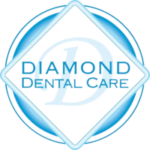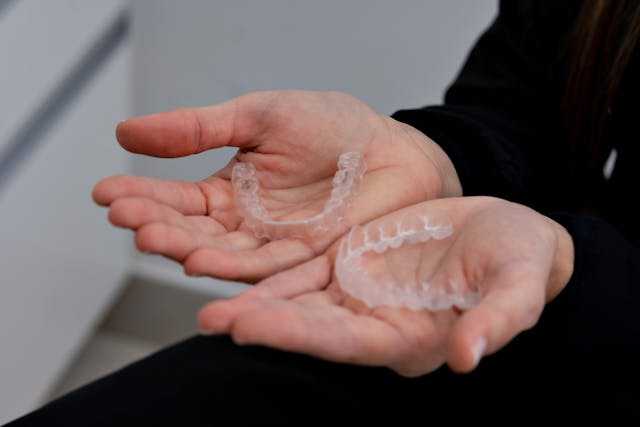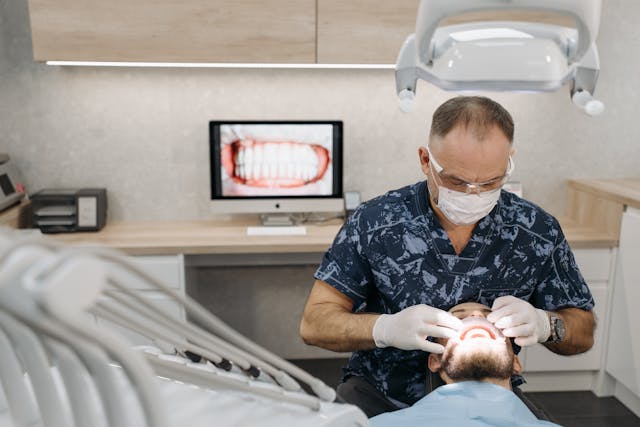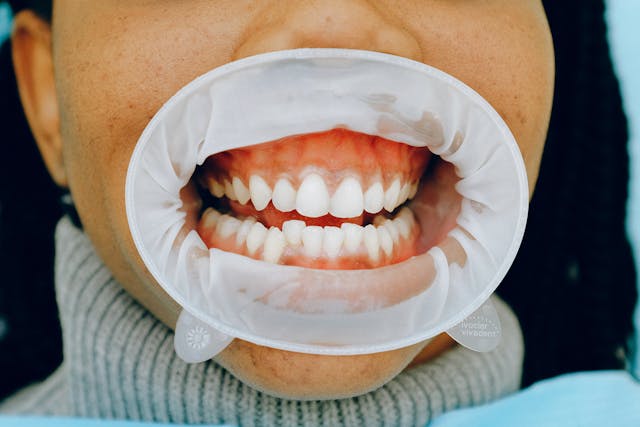Introduction
Ensuring your child’s oral health from an early age sets the foundation for a lifetime of healthy smiles. Pediatric dental care isn’t just about preventing cavities; it’s about establishing good habits, addressing teething issues, and making dental visits a positive experience. In this guide, we’ll cover everything you need to know to keep your child’s teeth healthy and strong, with tips on brushing, diet, and more. We’ll also highlight the excellent services offered by Diamond Dental Care in Diamond Bar, California.
At Diamond Dental Care, we can examine you in our cosmetic dentistry office and discuss what you don’t like about your smile. If you have gaps between your teeth or they are crooked, stained, or misshapen, we can fix them in our dental office. There are several ways we can address most aesthetic issues, so we will conduct an examination, take x-rays, discuss the timeframe we are working with, and then present you and your parents with a variety of options to choose from.
Since some have set time constraints, it is best to schedule your appointment with our office as soon as possible. You can do so by calling (909) 860-7579. You can also follow us on Facebook or provide your valuable feedback at Yelp. Thanks.
Understanding Teething
What is Teething?
Teething is a natural process where your baby’s first set of teeth, known as primary or baby teeth, start to emerge through the gums. This usually begins around six months of age, but it can vary from child to child.
Common Symptoms of Teething
Teething can be uncomfortable for your little one. Common symptoms include drooling, gum swelling, irritability, and a tendency to chew on objects. Some babies may also experience mild fever and changes in their sleep patterns.
How to Soothe a Teething Baby
To soothe a teething baby, you can offer a clean, cool teething ring or a chilled washcloth for them to chew on. Massaging their gums with a clean finger can also provide relief. Over-the-counter remedies like teething gels should be used with caution and under the guidance of a pediatrician.
Establishing Good Oral Hygiene Early
When to Start Brushing
It’s important to start oral hygiene practices early. Begin cleaning your baby’s gums with a soft, damp cloth even before the first tooth appears. Once the first tooth emerges, you can start using a small, soft-bristled toothbrush with a smear of fluoride toothpaste.
Choosing the Right Toothbrush and Toothpaste
Select a toothbrush designed for infants, with a small head and soft bristles. Use a fluoride toothpaste recommended for children, starting with a grain-of-rice-sized amount and increasing to a pea-sized amount by the age of three.
Proper Brushing Techniques for Children
Brush your child’s teeth twice a day, in the morning and before bed. Use gentle, circular motions to clean all surfaces of the teeth and gums. Supervise brushing until your child is old enough to brush effectively on their own, usually around the age of six.
The Role of Diet in Oral Health
Foods That Promote Healthy Teeth
A balanced diet is crucial for dental health. Encourage your child to eat a variety of fruits, vegetables, dairy products, and lean proteins. Foods rich in calcium, such as milk and cheese, help strengthen teeth, while crunchy fruits and vegetables like apples and carrots can help clean teeth naturally.
Foods to Avoid
Limit sugary snacks and drinks, as they can contribute to tooth decay. Avoid sticky foods like gummies and candies, which can cling to teeth and promote cavities. Also, be cautious with acidic foods and drinks, which can erode enamel.
Importance of Hydration
Water is essential for oral health. It helps wash away food particles and reduces the risk of tooth decay. Encourage your child to drink water throughout the day, especially after meals and snacks.
First Pediatric Dental Visit
When to Schedule the First Visit
The American Academy of Pediatric Dentistal Care recommends scheduling your child’s first dental visit by their first birthday or within six months of their first tooth erupting, whichever comes first.
What to Expect During the First Visit
The first Pediatric Dental visit is usually short and involves a gentle examination of your child’s teeth and gums. The dentist will check for any signs of decay or developmental issues and may clean your child’s teeth. This visit is also an opportunity to discuss oral hygiene practices and address any concerns you may have.
Preparing Your Child for the Dentist
To prepare your child for their first dental visit, talk positively about the dentist and what to expect. Reading books or watching videos about going to the dentist can also help ease any anxiety.
Preventive Pediatric Dental Care
Fluoride Treatments
Fluoride treatments are effective in preventing tooth decay. Your dentist may recommend fluoride varnish applications during regular check-ups to strengthen your child’s enamel and protect against cavities.
Dental Sealants
Dental sealants are thin, protective coatings applied to the chewing surfaces of the back teeth (molars) to prevent cavities. Sealants are especially beneficial for children as they provide an extra layer of defense against tooth decay.
Regular Check-ups
Regular dental check-ups, typically every six months, are crucial for maintaining your child’s oral health. These visits allow the dentist to monitor your child’s dental development, provide preventive care, and address any issues early.
Dealing with Common Pediatric Dental Issues
Cavities
Cavities, or Pediatric Dental caries, are common in children. They occur when bacteria in the mouth produce acids that erode tooth enamel. To prevent cavities, encourage good oral hygiene, a healthy diet, and regular dental visits.
Gum Disease
Gum disease, or gingivitis, can also affect children. It’s characterized by red, swollen gums that may bleed during brushing. Maintaining good oral hygiene and regular dental check-ups can help prevent and manage gum disease.
Thumb Sucking and Pacifier Use
Prolonged thumb sucking and pacifier use can affect the alignment of your child’s teeth and jaw. Most children naturally stop these habits by age four, but if they persist, consult your dentist for advice on breaking the habit.
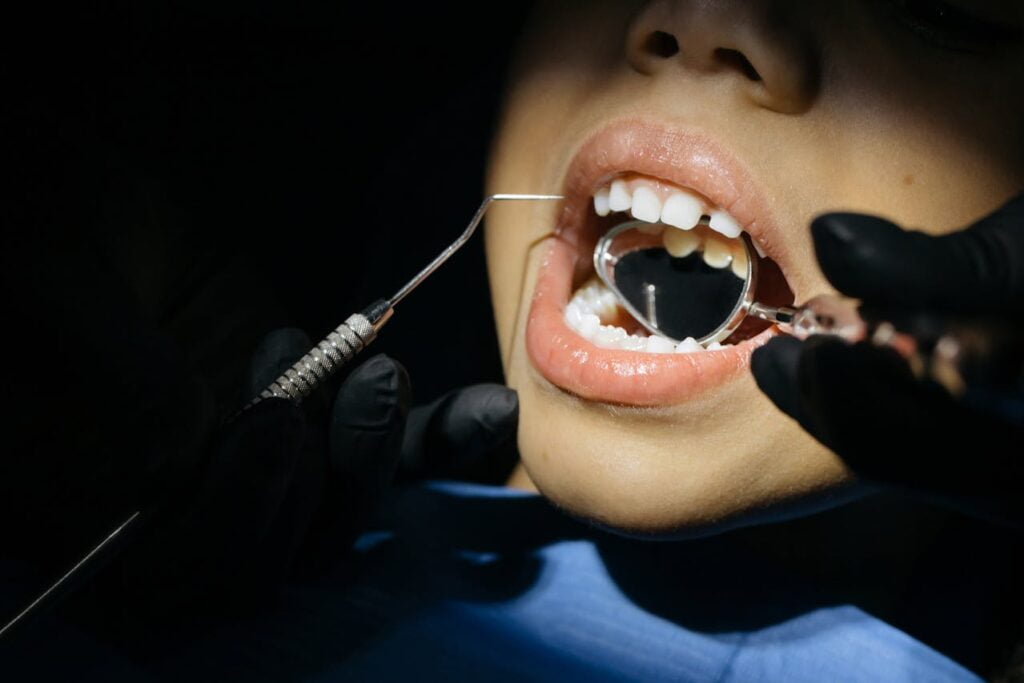
Emergency Dental Care
Handling Dental Injuries
Dental injuries, such as a knocked-out or chipped tooth, can occur during play or sports. If your child experiences a Pediatric Dental injury, contact your dentist immediately. For a knocked-out tooth, try to place it back in the socket or store it in milk until you can get to the dentist.
Recognizing Pediatric Dental Emergencies
Dental emergencies include severe toothaches, abscesses, and broken teeth. Signs of a dental emergency may include swelling, fever, or persistent pain. Seek prompt dental care if your child experiences any of these symptoms.
Immediate Steps to Take
In case of a dental emergency, stay calm and act quickly. Rinse your child’s mouth with warm water and apply a cold compress to reduce swelling. Contact your dentist or an emergency dental clinic for further instructions.
Promoting a Positive Pediatric Dental Experience
Making Dental Visits Fun
Creating a positive dental experience can help your child feel comfortable and reduce anxiety. Choose a pediatric dentist who has a child-friendly office environment, with toys, games, and a welcoming atmosphere.
Educating Your Child About Oral Health
Teach your child about the importance of oral health in a fun and engaging way. Use books, videos, and interactive apps to explain why brushing, flossing, and visiting the dentist are essential.
Building a Trusting Relationship with Your Dentist
Building a trusting relationship with your child’s dentist can make dental visits less stressful. Choose a dentist who communicates well with children and makes them feel at ease during appointments.
The Role of Parents in Pediatric Dental Care
Leading by Example
Children often mimic their parents’ behavior. Set a good example by practicing good oral hygiene yourself. Brush and floss your teeth together with your child to make it a shared activity.
Encouraging Good Habits
Encourage your child to develop good oral hygiene habits by making brushing and flossing a part of their daily routine. Use positive reinforcement, such as a sticker chart, to reward consistent oral care.
Monitoring and Assisting with Brushing
Monitor your child’s brushing until they are able to brush effectively on their own. Assist them with brushing and flossing, especially before bedtime, to ensure they are cleaning all areas of their mouth properly.
Diamond Dental Care, Diamond Bar, California
Overview of Services
Diamond Dental Care in Diamond Bar, California, offers comprehensive dental services for children and adults. Their team of experienced professionals is dedicated to providing high-quality care in a comfortable and welcoming environment.
Pediatric Dental Specialties
Diamond Dental Care specializes in pediatric dentistry, offering services such as routine check-ups, fluoride treatments, dental sealants, and emergency care. They focus on preventive care to ensure your child’s teeth stay healthy and strong.
Why Choose Diamond Dental Care
Choosing Diamond Dental Care means choosing a team that prioritizes your child’s comfort and dental health. Their child-friendly approach, combined with advanced dental technology, ensures that your child receives the best possible care.
Conclusion
Taking care of your child’s oral health from an early age is crucial for their overall well-being. By establishing good oral hygiene habits, maintaining a healthy diet, and ensuring regular pediatric dental visits, you can help your child enjoy a lifetime of healthy smiles. Diamond Dental Care in Diamond Bar, California, is here to support you every step of the way, providing expert pediatric dental care in a friendly and welcoming environment.
FAQs
How often should my child visit the dentist?
Your child should visit the dentist every six months for routine check-ups and preventive care.
What should I do if my child has a cavity?
If your child has a cavity, schedule a dental appointment as soon as possible. The dentist will evaluate the cavity and recommend appropriate treatment, which may include a filling or other restorative procedures.
Are dental X-rays safe for children?
Yes, dental X-rays are safe for children. Dentists take precautions to minimize radiation exposure, and the benefits of detecting dental issues early outweigh the risks.
How can I prevent my child from getting cavities?
Prevent cavities by encouraging good oral hygiene, limiting sugary snacks and drinks, ensuring a balanced diet, and scheduling regular dental visits for preventive care.
What should I do if my child is afraid of the dentist?
If your child is afraid of the dentist, choose a pediatric dentist who specializes in treating children and creating a positive dental experience. Talk to your child about what to expect and use books or videos to help ease their fears.
